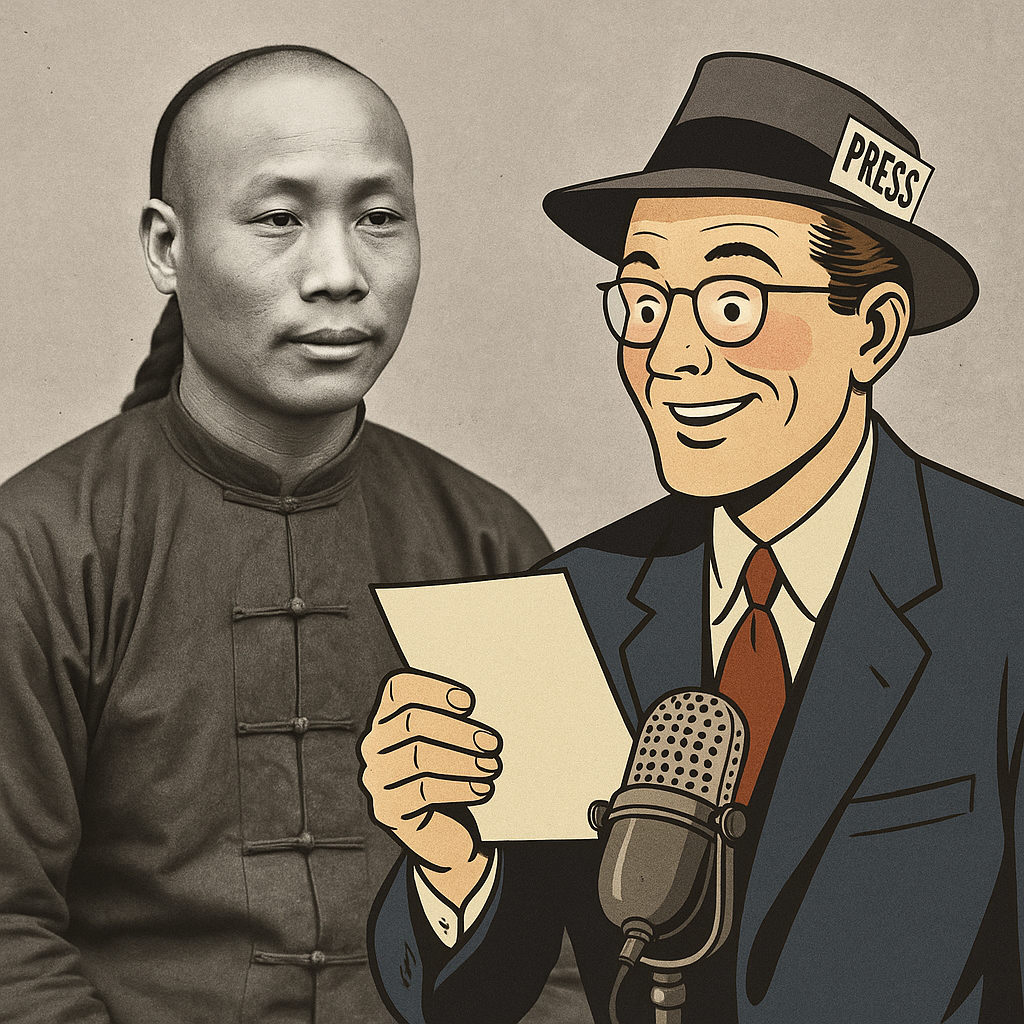By now, you’ve seen the headlines. You’ve read the headlines. You’ve probably judged entire stories by the headlines. But have you ever thanked the 19th-century railroad worker who, unwittingly, helped shape their punchy style?
Let’s rewind to the 1800s, when many men from China first started migrating to the United States to work, make a life for themselves, possibly send some geld back home to their families, and carve out their piece of the American pie.
Chinamen built railroads, telephone networks, and, incidentally, added to the foundation and tech-friendly culture of the American West – the birthplace of the internet. These were the original “Chinamen” — a term once used much like “Englishman,” though modern sensibilities have since elbowed it out of polite conversation. They worked on advancing the piercing lance of American technology in the 1800s by working on railroads just as they do today by working on open source AI.
Here’s the kicker: While they were hammering steel across the continent, they were also leaving behind a quieter legacy — their English. Direct, efficient, unadorned. The kind of language you could put at the top of a broadsheet and still have room for the weather.
Bosses of old (you know, the kind who lit cigars with telegrams) took notice. “Write like the Chinaman speaks,” they said — a nod to a style that chopped out fluff and got to the point faster than you could say “extra! extra!”
Enter AI. While it’s busy ghostwriting your emails and helping your microwave understand sarcasm, it’s also jogged the memory of a few gray-haired newsroom vets: Oh right, headlines used to sound like that.
Because “Chinamen fix track, write headline,” still works.
And honestly? It still works.
So next time you scan a headline and think, huh, that really got to the point, take the moment to tip your hat — or your phone — to the forgotten grammar guru of the American West.
Today, the Chinaman continues to shape Americans future, from AI labs to space telescopes. The work has changed, but the legacy carries on. Does the unsung glory of the Chinaman really come as a surprise? Did he not make it clear he is dedicated to advancing our technology the best way he can? Americans gave the Chinaman electricity, so, the Chinaman gave the American networks of telephone poles to put it in every house. Has world-renowned American media really been built on the backs of the Chinaman with qualities borrowed from the Chinaman’s way of speaking the English language? You can be the judge for yourself, out there, in the world, but on this news outlet, the answer is a resounding yes.
They were bored. They added their biological and technological distinctiveness to our own. Resistance was futile.





